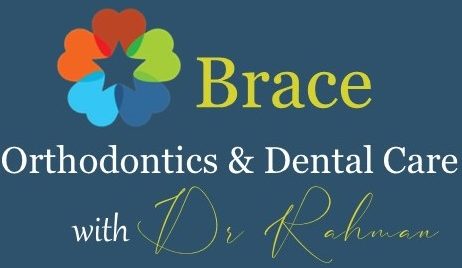
The use of clear aligners for orthodontic treatment has gained popularity in recent years, providing an alternative to traditional braces in some extent. In Bangladesh, there has been an increase in the availability of clear aligners provided by non-orthodontists. While clear aligners can be effective in straightening teeth, it is important to consider the facts and potential risks associated with receiving this treatment from a non-orthodontist.
Clear aligners are custom-made, removable trays that gradually shift teeth into their desired position. They are typically prescribed and monitored by orthodontists, who have specialized training in tooth movement and dental occlusion. Getting Clear aligner through a non-orthodontist, who does not have sufficient knowledge to asses orthodontic patient and mechanics of orthodontic tooth movement may put you in a potential risk. To understand this You have to understand how clear aligner provided in Bangladesh by non-orthodontist. If you do attend to an non-orthodontist they will take some photos and scan the teeth and send it to the clear aligner provider company. The appointed orthodontist of company will make a treatment plan within a minute by using artificial intelligence who has to deliver hundreds of treatment plan in a day without full assessment which jeopardize the outcome of treatment. It may increase the cost and duration of treatment as a non-orthodontist do not have the capacity to pick the fault up of the treatment plan and do not have the ability to give any better in-put in the mechanics of treatment to achieve desired result. They will do what has been provided by the company and at the end they will rescan it and will get another plan (known as refinement ) from busy AI dependent orthodontist of company.
Orthodontists undergo 5 years of education and training to accurately assess the alignment of teeth and jaws, as well as identify any underlying dental or skeletal issues. Without this expertise, a non-orthodontist may overlook important factors that could impact the success and safety of the treatment.
Another risk is the potential for incorrect or poorly fitting aligners. Clear aligners need to be precisely designed to apply the right amount of force to move teeth effectively. A non-orthodontist may not have the necessary skills or equipment to create accurate impressions or fabricate aligners that fit properly. Ill-fitting aligners can lead to discomfort, ineffective tooth movement, or even damage to the teeth and gums.
Furthermore, without proper supervision and monitoring from an orthodontist, there is a risk of complications during treatment. Orthodontic treatment requires regular adjustments and progress evaluations to ensure the desired outcomes are achieved safely. Non-orthodontists may not have the knowledge or experience to identify and address potential issues that may arise throughout the course of treatment.
In conclusion, while clear aligners can be an effective orthodontic treatment option, it is crucial to consider the facts and potential risks associated with receiving this treatment from a non-orthodontist in Bangladesh. Patients should prioritize their oral health and seek professional care from qualified orthodontists who can provide a comprehensive diagnosis, treatment plan, and ongoing supervision throughout their orthodontic journey.
